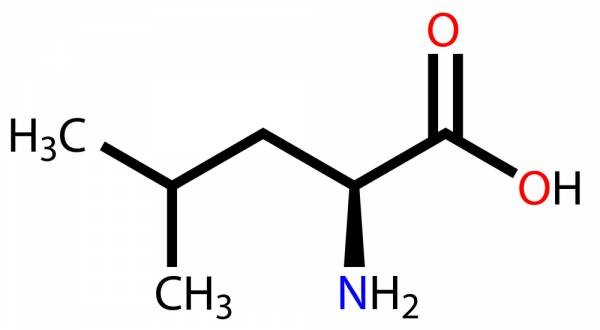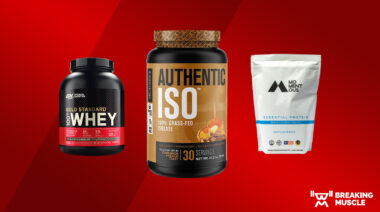One of the first nutritional concepts we begin to wonder about when we start lifting weights is protein consumption. There’s something mystifying about protein. It’s what our muscles are made out of, we all know we need it, but we don’t know how much, how often, when, and in what form will give us the best results. There are a lot of studies out there. And I mean a lot. But it’s not always easy to tell what you can trust. Even many of the studies are funded by protein supplement companies with an agenda.
Recently a review was published in the Journal of the International Society of Sports Nutrition that took a look at the issue of protein as it is concerned with muscle protein synthesis (the development of new muscle). Sometimes having a chunk of research in one place is a good starting point, but it’s possible still to be biased. That’s why I’m here. I’m about the most skeptical and discerning person imaginable. My friends have a hard time having conversations with me, but hey, it makes for good articles. So let me review what was found and then give my opinion on it as a longtime coach and nutritionist.
How Much
First up, how much protein and how many calories should we eat if we are hoping to develop our musculature? Looking at nine studies the consensus seems to be about 1.2 to 2 grams of protein per kilo of body weight. That’s about .55 to .9 grams per pound. You may have heard people talking about grams per pound of lean body mass before, which is not addressed in the review, but it seems according to these numbers if you shoot for that as a goal you will be doing okay. Personally, I’d say these numbers look right to me, although they do not mention if they can be taken mostly in one meal after a workout or not. They also say to aim for 44 to 50 calories per kilo of body weight, or 20 to 23 calories per lb. This also seems pretty accurate to me, although depending on how much you exercise it might be a bit low.
 Leucine
Leucine
Next we have leucine. Biochemistry seems to indicate this amino acid is necessary for the synthesis of new muscle tissue. There were some studies that indicated its effectiveness in this regard, but they compared it to control only, which could be explained solely by consuming any aminos at all. However, when compared alone to a BCAA supplement it was nearly as effective. The bottom line is, shoot for about 3 to 4 grams of leucine per day. It doesn’t really seem to matter how it comes, even if it’s a part of the protein you’re already consuming just as long as you’re getting enough. Essentially, if you are following the above recommendations for grams of protein, you’re generally covered.
What Kind
As for what kind of protein, the studies only look at supplements and liquid sources. No big surprises here. Whey is better than whole milk is better than casein protein supplements. Soy protein seems to be about as good as casein for stimulating new muscle, and has all the essential amino acids. Personally, if you’re meeting your protein needs by diet alone, I doubt it matters all that much if you consume one of these beverages, but for the sake of convenience. Cow milk also proved superior to soy milk, but this could be because of greater sugar content, greater total protein content, or most likely because of the greater bio-availability of the protein.
Timing
Lastly is timing. Most of the studies indicate that aminos before a workout, and a protein supplement immediately following a workout is the ideal condition for muscle development. Again, no surprises on the results on this front, but I want to offer some alternatives. Firstly, I do not like the idea of consuming proteins or amino acids prior to exercise. Protein has the greatest thermic effect of all nutrients, meaning it could drain your energy for exercise. Second, I do think it’s good to eat a protein meal as soon after a workout as you are able, but I don’t find it necessary to obsess over this, as many seem to. As long as you aim to get a meal in shortly after, your muscle will be just fine.
While there was nothing really new and amazing brought out in this review it covered many of the basics with a fine-tooth comb. Sometimes we just need to be reminded of what’s important in nutrition to keep us on track.
References:
1. Matthew Stark, et. al., “Protein timing and its effects on muscular hypertrophy and strength in individuals engaged in weight-training,” Journal of the International Society of Sports Nutrition 2012, 9:54
Photos courtesy of Shutterstock.






